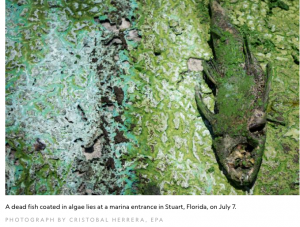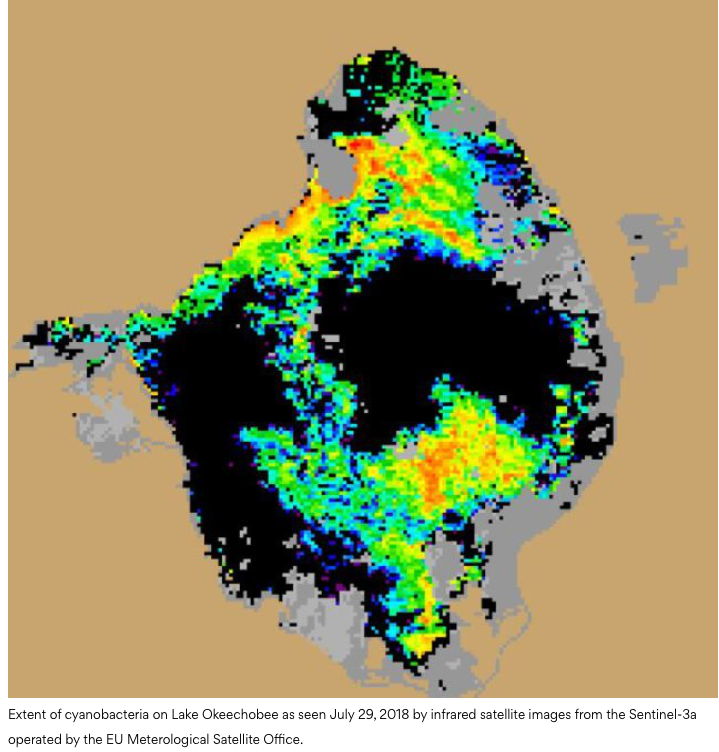
The toxic algae bloom grew larger in Lake Okeechobee over the weekend, according to the Palm Beach Post. The paper says that scientists had feared this would happen.
New satellite images show that over the weekend the algae bloom grew to cover 40 percent of the lake (220 square miles) after falling to a 30 percent level earlier in July.
A NOAA oceanographer says the increase could be because calm winds helped the algae collect nearer the surface, where it’s easier for the satellite cameras to detect it. Still, Sachi Mishra, the oceanographer, says the bloom in general is receding, since it covered 90 percent of the lake on July 2.
Meanwhile, the National Geographic reports that the spread of the toxic green algae, which has killed fish, manatees and birds, could be the state’s new normal. It has already spread out both sides of the lake, reaching as far as Palm Beach on the Atlantic Coast and Fort Myers on the Gulf Coast.
The Army Corps of Engineers started lowering water in the lake on January 30, months earlier than usual, because it is trying to shore up the aging dike surrounding the lake. The first algae blooms developed in early May.
The Corps began reducing the discharge out of the lake on July 1. But it is now hurricane season, and the lake has to be kept low enough to absorb heavy summer rains and a blow from a hurricane. The lake can gain two or three feet during a normal wet season, and the only way to drain water off is to pump it through the canals leading to both coasts.
Lake Okeechobee is a perfect algae nursery; it’s broad, shallow and full of nitrogen and phosphorous, nutrients that nourish large algae blooms. Read more:
https://news.nationalgeographic.com/2016/07/toxic-algae-florida-beaches-climate-swamp-environment/




